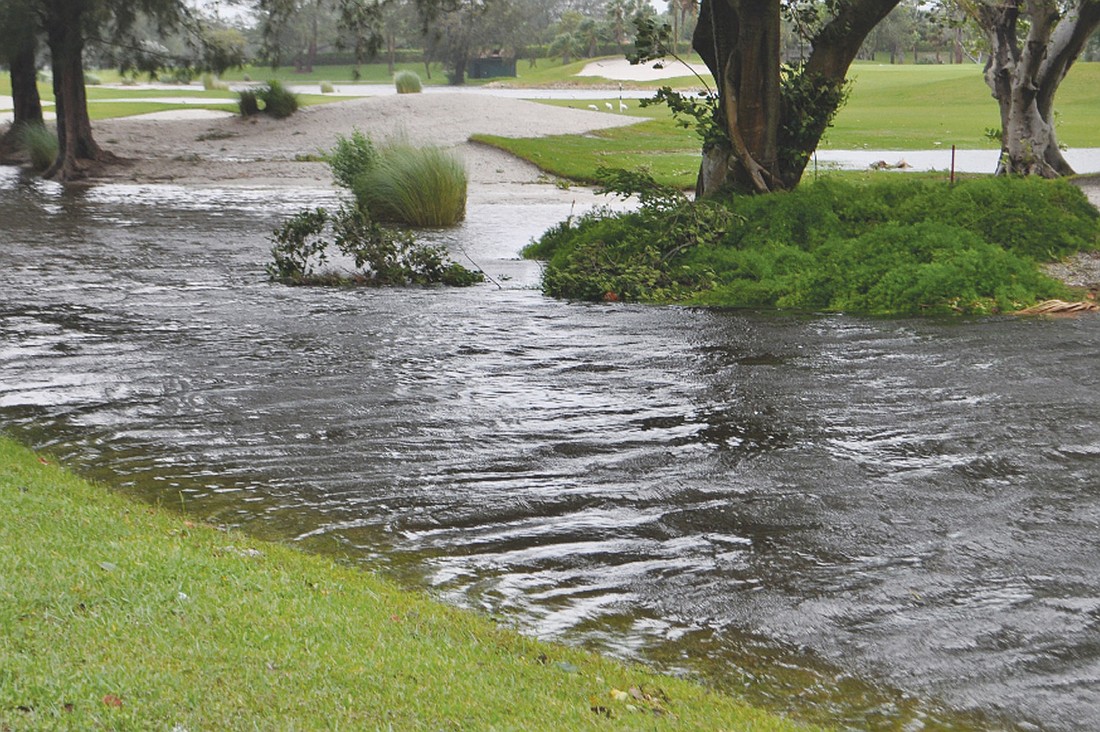- April 27, 2024
-
-
Loading

Loading

You’ve probably heard about Tropical Storm Debby’s toll on Longboat Key’s beach by now, but what about Debby’s impact on that other island amenity that for many visitors and residents is a favorite place to spend a sunny day?
We’re talking about the Longboat Key Club and Resort’s Islandside and Harbourside golf courses, and according to Director of Agronomy John Reilly, the courses held up well.
Reilly estimates that the courses were left with just three acres of dead grass out of a total 187 acres. Although cleanup efforts involving downed trees remain ongoing, the Key Club was able to re-open its Harbourside course within three days and its Islandside course within six days of Debby’s impacts.
Debby was the first major storm to hit the area since the Key Club began using an organic approach to fertilizing its golf course nearly three years ago, and Reilly believes that the approach mitigated damages to the course.
Since September 2009, the Key Club has used animal waste-based fertilizer on its courses, which, unlike synthetic fertilizers, has no salt added.
As a result, when the courses flooded with saltwater during the tropical storm, the grass didn’t experience the salt burn that often causes grass to turn brown or yellow. Additionally, the courses didn’t experience problems such as algae that can often arise after a major rain event when synthetic fertilizers are used.
Reilly estimates that organic fertilization costs 30% to 40% more than typical fertilization methods. The approach results in grass that grows more slowly but also more densely than usual. Additionally, since the Key Club implemented organic methods, it has gotten periodic complaints about the smell.
But, Reilly believes the tradeoff is a worthwhile one.
“I think if we had had a normal or regular golf course, we probably would have had a lot of turf damage and loss,” he said.